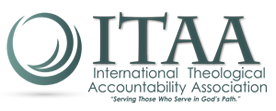Unlike most countries, institutions of higher education in the United States are not accredited by the government. It is the duty of private accrediting agencies to establish standards of quality educational practice and then review the colleges and universities seeking accreditation to determine if they attain or surpass the minimums.
A school may fail to be granted an institutional accreditation for any number of reasons, but they may choose to seek accreditation for individual degree programs within the institution. For example, a school may house many different trade training programs. Most trades are governed by their own professional associations and a review by peers in the profession would be highly preferable to ensure that students are being trained most appropriately for future employment in their field of training. Individual program accreditation is performed by the governing professional boards instead of by the organizations that recognize accreditation of institutions as a whole.
The increase in distance education options has created the need for recognition from the agencies that relate to issues specific to online education. The Distance Education and Training Council (DETC) grants accreditation to
online schools and universities. One advantage of accreditation by the DETC is that this entity maintains a list of currently accredited online programs, so that students can be assured that they will receive the education they are paying for rather than wasting their money at a diploma mill. Any credits earned at schools that are not accredited by the DETC will not transfer to universities with physical campuses, or even to other distance programs that are accredited. More information regarding accreditation of online programs can be found at www.joinitaa.com.
It is the decision of each institution of higher education to determine if accreditation will be pursued, and from which accrediting agency or agencies. Accreditation is not mandated by the federal government. More information regarding why an institution might choose not to pursue accreditation can be found at www.joinitaa.com.
After asking, “How do I get accredited?” the first step toward becoming accredited is to obtain the written standards of the desired accrediting agency. The school’s board and administration evaluate these standards and the instructions for the needed changes are given to those who will implement the adjustments. Changes may need to be made to the curriculum, to physical resources such as technology available to students, or even the school’s organizational structure. Once improvements have been made, the institution will execute another self-evaluation to ensure that they are in compliance with the accreditation standards.
Continuing to ask, “How do I get accredited,” once the school determines that it is in compliance with all of the systems and policies that are established by the accrediting institution, the accrediting entity is invited to visit. The observing committee will scrutinize such areas as administration, course offerings, curriculum and classroom amenities. Commission members will also sit in on classes and conduct interviews.
Temporary accreditation will be granted upon the assumption that the school has met or exceeded all of the guidelines provided by the accrediting agency. Accreditation will be renewed at regular intervals, such as every five to ten years. Accreditation standards change continually, so the renewal procedure requires the institution to constantly update their practices according to those changes. If a school fails to meet all of the accreditation standards at any point after the initial accreditation, it is in danger of losing accreditation. See www.joinitaa.com for more details regarding how to get accredited.



